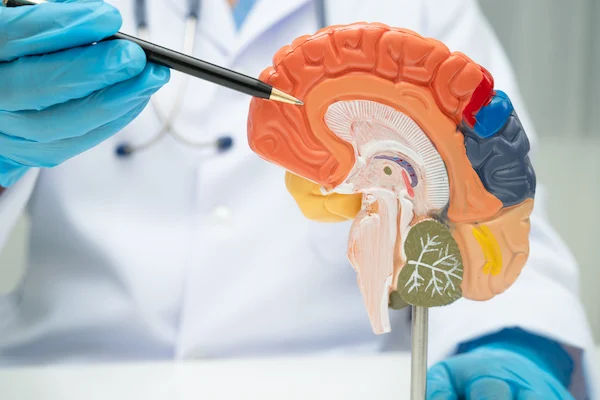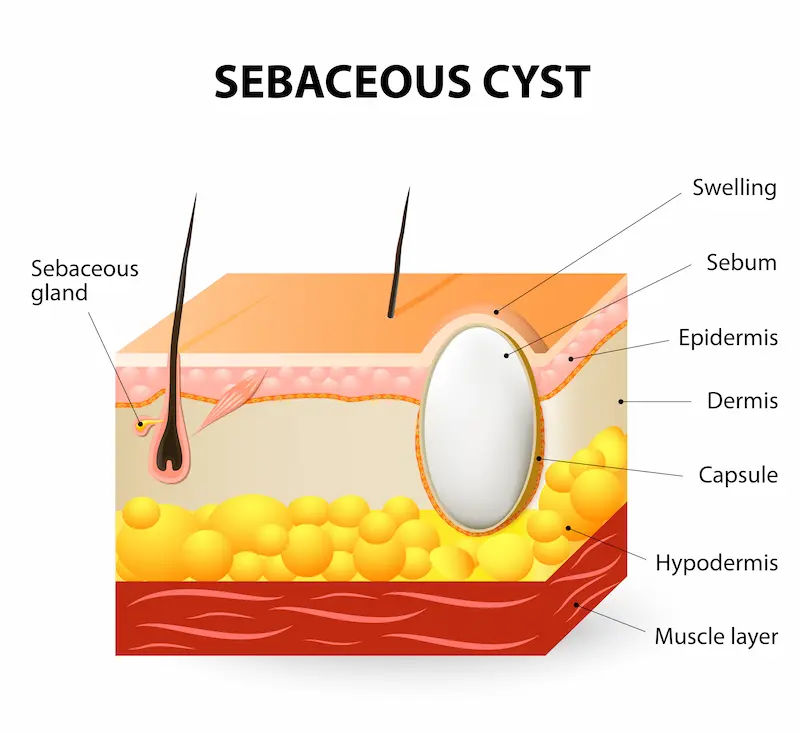Common Symptoms of Uterine Cancer: Early Warning Signs to Watch For
Discover essential information about uterine cancer, including its symptoms, stages, treatment options, and diagnosis. Gain insights into early detection, curability, and key facts to stay well-informed about this prevalent gynaecological cancer.

Written by Dr Sonia Bhatt
Last updated on 13th Jan, 2026
Uterine cancer, which affects thousands of women worldwide every year, is one of the most common gynaecological cancers. Early detection plays a vital role in improving survival rates and the success of treatment, making awareness of its symptoms a critical factor.
Being aware of uterine cancer symptoms is critical for early medical intervention and improved patient outcomes. This article provides a comprehensive guide to the symptoms of uterine cancer, highlighting key warning signs, factors that may increase the risk, and the importance of regular check-ups for early diagnosis.
What is Uterine Cancer?
Uterine cancer develops in the uterus, the pear-shaped organ in a woman’s pelvis where the fetus grows during pregnancy. It typically starts when cells in the uterus grow uncontrollably, forming a tumour. Uterine cancer has two main types. These are:
Endometrial Cancer: This is the most common type of uterine cancer, originating in the lining of the uterus (endometrium). Early detection of endometrial cancer significantly improves the prognosis.
Uterine Sarcoma: It is a less common type that begins in the muscles or other tissues of the uterus. It is more difficult to treat than endometrial cancer.
Common Symptoms of Uterine Cancer
A key sign of uterine cancer is unusual bleeding from the uterus. The common symptoms include:
Slight Bleeding between Menstrual Cycles: This refers to spotting or light bleeding that occurs outside of regular periods.
Heavy or Prolonged Periods: This occurs when periods are far heavier or last significantly longer than usual.
Abnormal Vaginal Bleeding: Any bleeding after menopause is abnormal and should be investigated quickly since it can be the first evident sign of uterine cancer.
Any abnormal bleeding from the uterus should never be ignored. Prompt evaluation can lead to early diagnosis and treatment, improving outcomes.
Chronic pelvic pain or a sense of pressure in the pelvic area can signal uterine cancer. This discomfort is often described as dull or aching and may intensify over time. Women who experience these symptoms should consult a doctor to identify the cause.
1. Recognising Less Common Symptoms
Uterine cancer can sometimes affect urination, with symptoms such as:
An increased need to urinate more often than usual
A sensation of incomplete bladder emptying
Pain or burning during urination
Unexplained weight loss can also be a warning sign of advanced uterine cancer. This symptom is often accompanied by:
Decreased desire to eat
Fatigue or loss of energy
2. Symptoms Specific to Advanced Stages
In the later stages of uterine cancer, individuals may experience extreme fatigue, making it difficult to perform daily tasks. This could be due to anaemia, which occurs when cancer-related bleeding leads to low levels of red blood cells. Fatigue may also result from the cancer spreading to other parts of the body.
As the disease progresses, symptoms such as bloating, constipation, or trouble swallowing may develop. These gastrointestinal issues are often linked to the cancer spreading to nearby organs, such as the intestines.
Get Expert Care for Your Symptoms
Identifying the Risk Factors
Various factors can elevate the risk of uterine cancer. Knowing these risks can help detect the disease early:
Increased Oestrogen Levels: When oestrogen levels are higher than progesterone, or in conditions like obesity, the risk of uterine cancer increases.
Hormonal Replacement Therapy (HRT): HRT, when taken alone, has been shown to increase the risk, but combined HRT products do not show this increase and may even offer protection.
Age: Women over the age of 50 are at a higher risk, as uterine cancer becomes more prevalent after menopause.
Obesity: Excess fat tissue can alter hormone levels, promoting abnormal cell growth in the uterus.
Genetics: A family history of uterine or colorectal cancer, especially in cases of Lynch syndrome, can increase the risk.
Medical Conditions: High-risk factors include conditions such as diabetes, hypertension, and PCOS (polycystic ovary syndrome)
The good news is that women can also reduce their risk of uterine cancer by addressing modifiable risk factors, such as obesity and hormone therapy, with medical supervision.
Diagnosing Uterine Cancer
Diagnosis of uterine cancer typically starts with a detailed medical history and physical examination. Doctors may inquire about:
Any abnormal bleeding or pelvic pain
Age and family medical history
Past medical conditions or treatments that might affect risk
The most common diagnostic tools for uterine cancer are:
Transvaginal Ultrasound: This is a routine test used to visualise the uterus and check for irregularities in the endometrium, the inner lining of the uterus.
Endometrial Biopsy: This procedure involves taking a sample of tissue from the lining of the uterus, which is then examined under a microscope to check for signs of cancer or other abnormalities.
MRI (Magnetic Resonance Imaging) or CT (Computed Tomography) Scans: These imaging tests are used to assess how far the cancer has spread and to help determine the stage of the disease.
Some symptoms of uterine cancer can resemble those of ovarian or cervical cancer. For example, abnormal bleeding is also a common symptom of cervical cancer, while bloating is more often associated with ovarian cancer. To make an accurate diagnosis, doctors rule out other conditions, such as fibroids, polyps, or infections.
This process helps ensure that treatment is targeted and avoids unnecessary procedures. Further tests may be conducted to confirm the diagnosis and determine the most appropriate treatment plan.
When to See a Doctor?
If a woman experiences any of the following, she should seek medical advice:
Postmenopausal Bleeding: Even light bleeding after menopause should be promptly evaluated.
Persistent Pain or Pelvic Pressure: Continuous discomfort or pressure in the pelvic area is not normal and should be checked by a doctor.
Unexplained Changes in Weight or Appetite: Unexplained weight loss or changes in appetite may signal a health issue and should be addressed.
It is especially important to seek medical advice if symptoms persist, worsen over time, or occur alongside general signs of illness, such as fever or extreme fatigue. Early consultation increases the chances of early detection and successful treatment.
Impact on Lifestyle and Psychological Well-being
Lifestyle changes can play a crucial role in managing symptoms and enhancing quality of life. For example:
Engaging in Light Exercise: Activities like walking or yoga can help alleviate fatigue and improve mood.
Eating a Balanced Diet: Nutrient-rich foods provide energy and support overall health.
Seeking Professional Help: Oncologists and nutritionists can work together to create a personalised care plan.
Receiving a uterine cancer diagnosis can be emotionally challenging. Psychological support, such as counselling or support groups, can help patients maintain a good quality of life throughout their journey. Open communication with loved ones and healthcare providers is also essential in coping with the emotional aspects of the disease.
Conclusion
Uterine cancer often presents through symptoms like abnormal bleeding, pelvic pain, and changes in urination. Early detection through awareness of these symptoms and regular check-ups significantly improves treatment outcomes. Understanding personal risk factors, such as age, obesity, and hormonal changes, can help in prevention.
While lifestyle changes like maintaining a healthy diet and exercise routine can aid in managing symptoms, timely medical intervention remains key to addressing uterine cancer effectively. Always consult a healthcare provider if you notice any concerning symptoms for early diagnosis and better prognosis.
Consult Top Oncologists
Get Expert Care for Your Symptoms

Dr.sanchayan Mandal
Medical Oncologist
17 Years • MBBS, DrNB( MEDICAL ONCOLOGY), DNB (RADIOTHERAPY),ECMO. PDCR. ASCO
Kolkata
Dr. Sanchayan Mandal Oncology Clinic, Kolkata

Dr Gowshikk Rajkumar
Oncologist
10 Years • MBBS, DMRT, DNB in Radiation oncology
Bengaluru
Apollo Clinic, JP nagar, Bengaluru

Dr. Vishwanath S
Oncologist
8 Years • MBBS, MD, DM, Fellowship at MD Anderson Cancer Center
Bengaluru
Apollo Spectra Hospitals, Koramangala, Bengaluru

Dr. Sanchayan Mandal
Medical Oncologist
17 Years • MBBS, DrNB( MEDICAL ONCOLOGY), DNB (RADIOTHERAPY),ECMO. PDCR. ASCO
Kolkata
MCR SUPER SPECIALITY POLY CLINIC & PATHOLOGY, Kolkata

Ms. Hiba Siddiqui
Oncologist
13 Years • BA (Hons), MA, Professional Certification Psycho-oncology, PhD
Delhi
Apollo Hospitals Indraprastha, Delhi
Consult Top Oncologists

Dr.sanchayan Mandal
Medical Oncologist
17 Years • MBBS, DrNB( MEDICAL ONCOLOGY), DNB (RADIOTHERAPY),ECMO. PDCR. ASCO
Kolkata
Dr. Sanchayan Mandal Oncology Clinic, Kolkata

Dr Gowshikk Rajkumar
Oncologist
10 Years • MBBS, DMRT, DNB in Radiation oncology
Bengaluru
Apollo Clinic, JP nagar, Bengaluru

Dr. Vishwanath S
Oncologist
8 Years • MBBS, MD, DM, Fellowship at MD Anderson Cancer Center
Bengaluru
Apollo Spectra Hospitals, Koramangala, Bengaluru

Dr. Sanchayan Mandal
Medical Oncologist
17 Years • MBBS, DrNB( MEDICAL ONCOLOGY), DNB (RADIOTHERAPY),ECMO. PDCR. ASCO
Kolkata
MCR SUPER SPECIALITY POLY CLINIC & PATHOLOGY, Kolkata

Ms. Hiba Siddiqui
Oncologist
13 Years • BA (Hons), MA, Professional Certification Psycho-oncology, PhD
Delhi
Apollo Hospitals Indraprastha, Delhi



